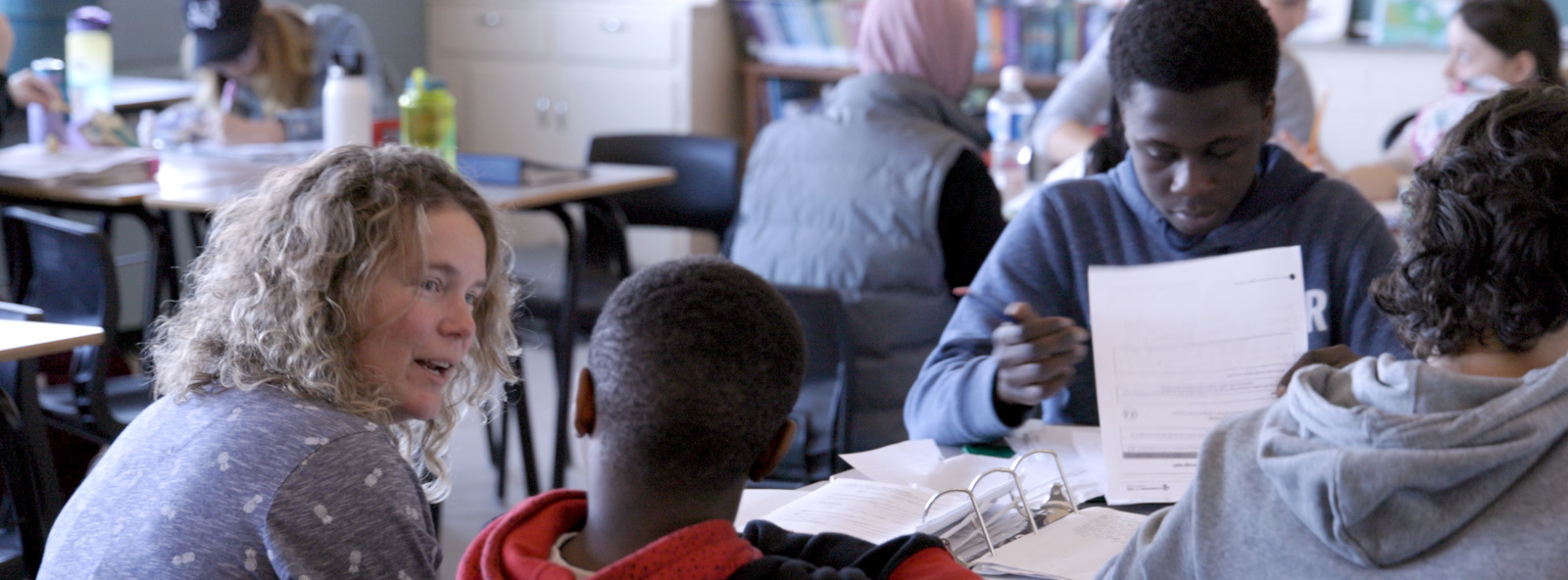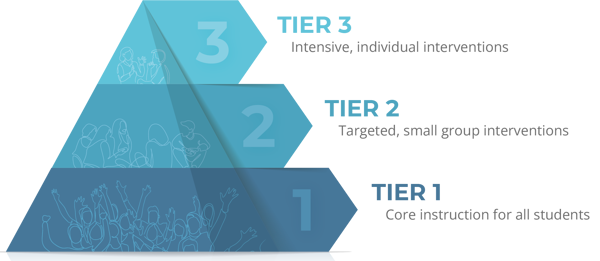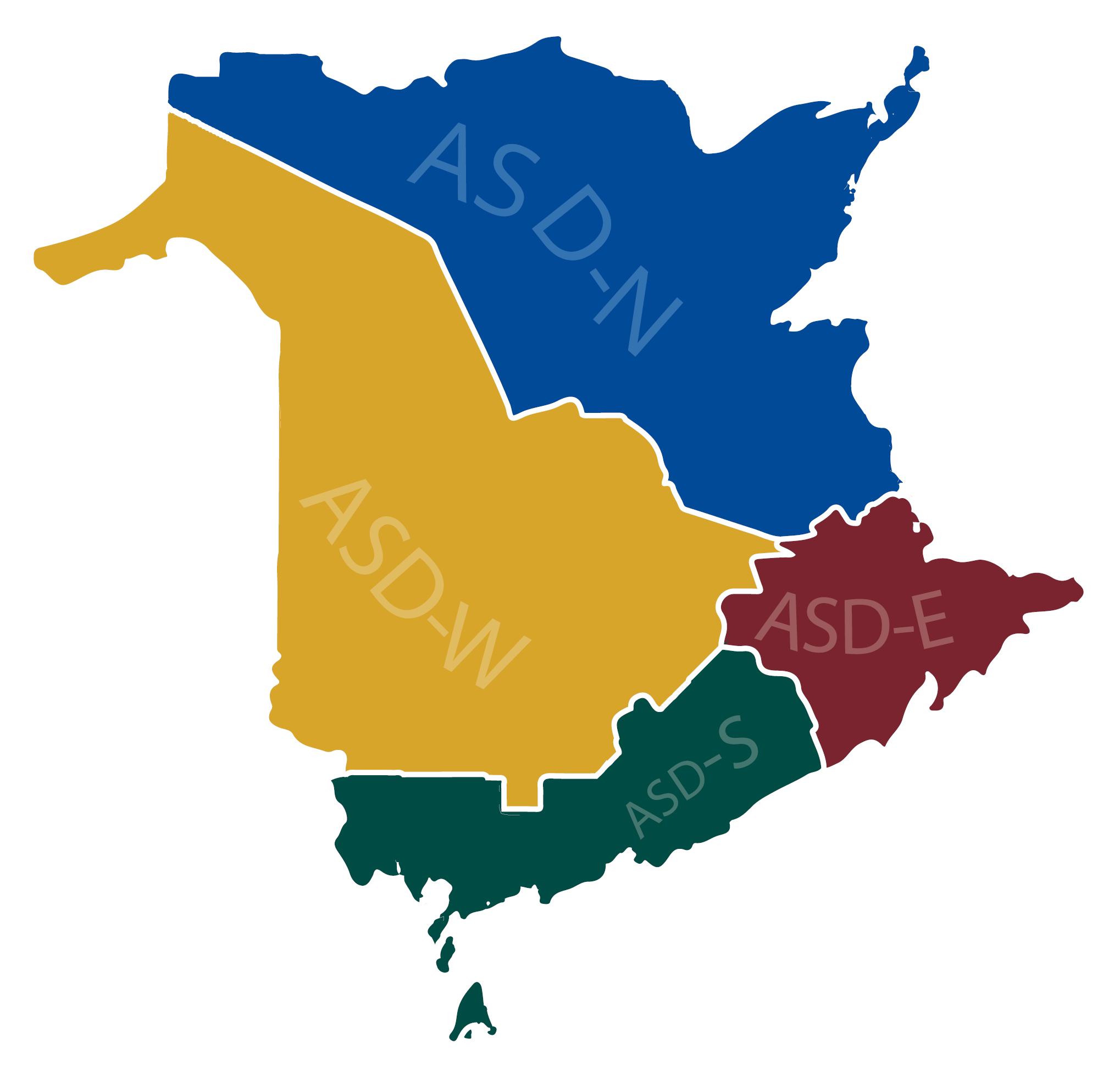
LEVELS OF IMPLEMENTATION

PBIS has engaged our students, staff, and community to look at a new ways of doing business in schools; focused on positivity, collaboration and data-driven decisions.
Brad MacDonald
Principal, Rothesay High School, ASD-South
The multi-tiered “continuum” is comprised of carefully selected, evidence-based practices at three different levels of support intensity. Specific practices are matched both to the level of support need, and the local cultural context
- Tier 1: Universal practices are experienced by all students and educators across all settings to establish a predictable, consistent, positive and safe climate.
- Tier 2: Targeted practices are designed for groups of students who need more structure, feedback, instruction and support than Tier 1 alone.
- Tier 3: Individualized practices are more intense and individualized to meet the challenges of students who need more than Tiers 1 and 2 alone.

SETTING THE STAGE FOR PBIS IMPLEMENTATION
Before planning new PBIS initiatives, school teams need to evaluate current practices and consider data regarding learner behaviour. Implementation of PBIS initiatives does not mean starting from a blank slate, but rather building on the strengths that currently exist, as well as planning and implementing initiatives according to a continuum of interventions.
Successful implementation will require:
- Team-based implementation
- Clear action plan
- School community engagement
- Professional learning opportunities
- Staff recognition for implementation
The following steps are recommended to facilitate the planning process for PBIS initiatives to engage school personnel and to develop plans that are meaningful and relevant. The outcome will be the development of a continuum of PBIS initiatives from tiers 1 to 3. It is expected that this will be a multi-year process. This continuum will need to be revised as needed based upon progress monitoring data, staff feedback, and lessons learned from implementing PBIS. Tier 1 School-Wide PBIS represents the foundation of the framework, and focus on this tier should be given priority until it is well-established within the school.

PBIS support the teaching and reinforcing of positive behaviors, providing clear expectations, and implementing effective interventions which leads to decreases in disciplinary referrals, suspensions, and other behavior-related issues. Our data shows that learners are more likely to succeed academically. when students feel safe, supported, and engaged in their learning environment. The PBIS framework provides different levels of support based on learner needs, with interventions ranging from universal supports for all to targeted interventions for those who require additional assistance.
Daniel McCarthy Principal
Tara Dixon, Vice-Principal
Andover Elementary School, New Brunswick, Canada
